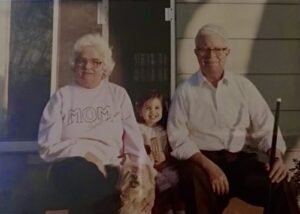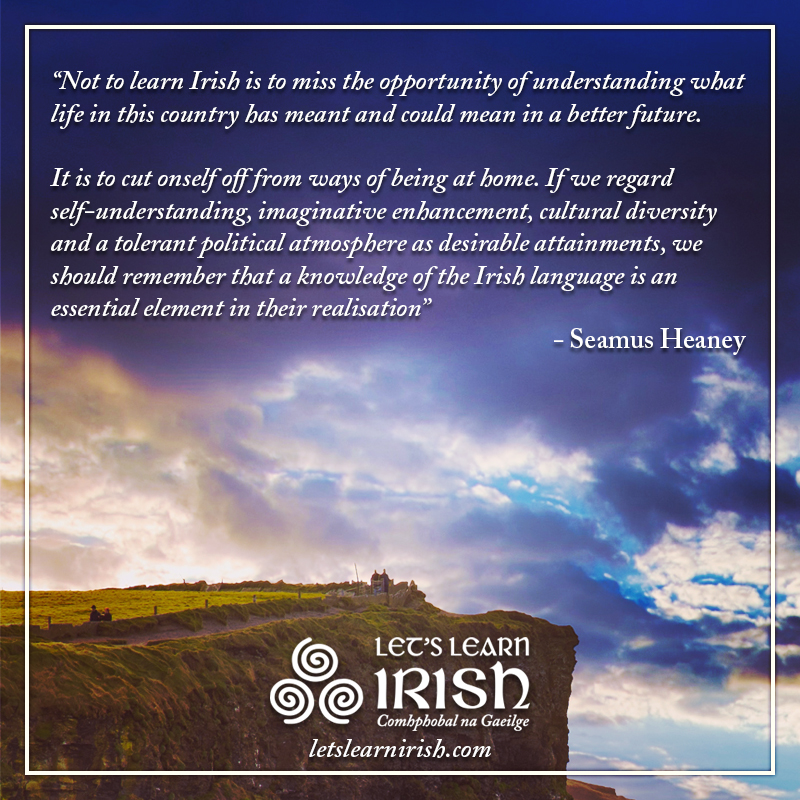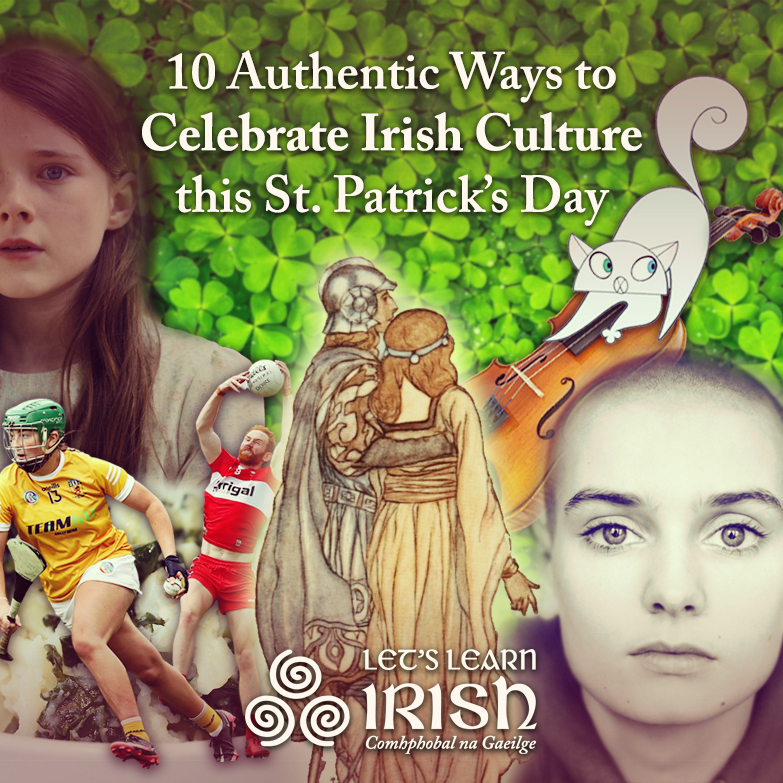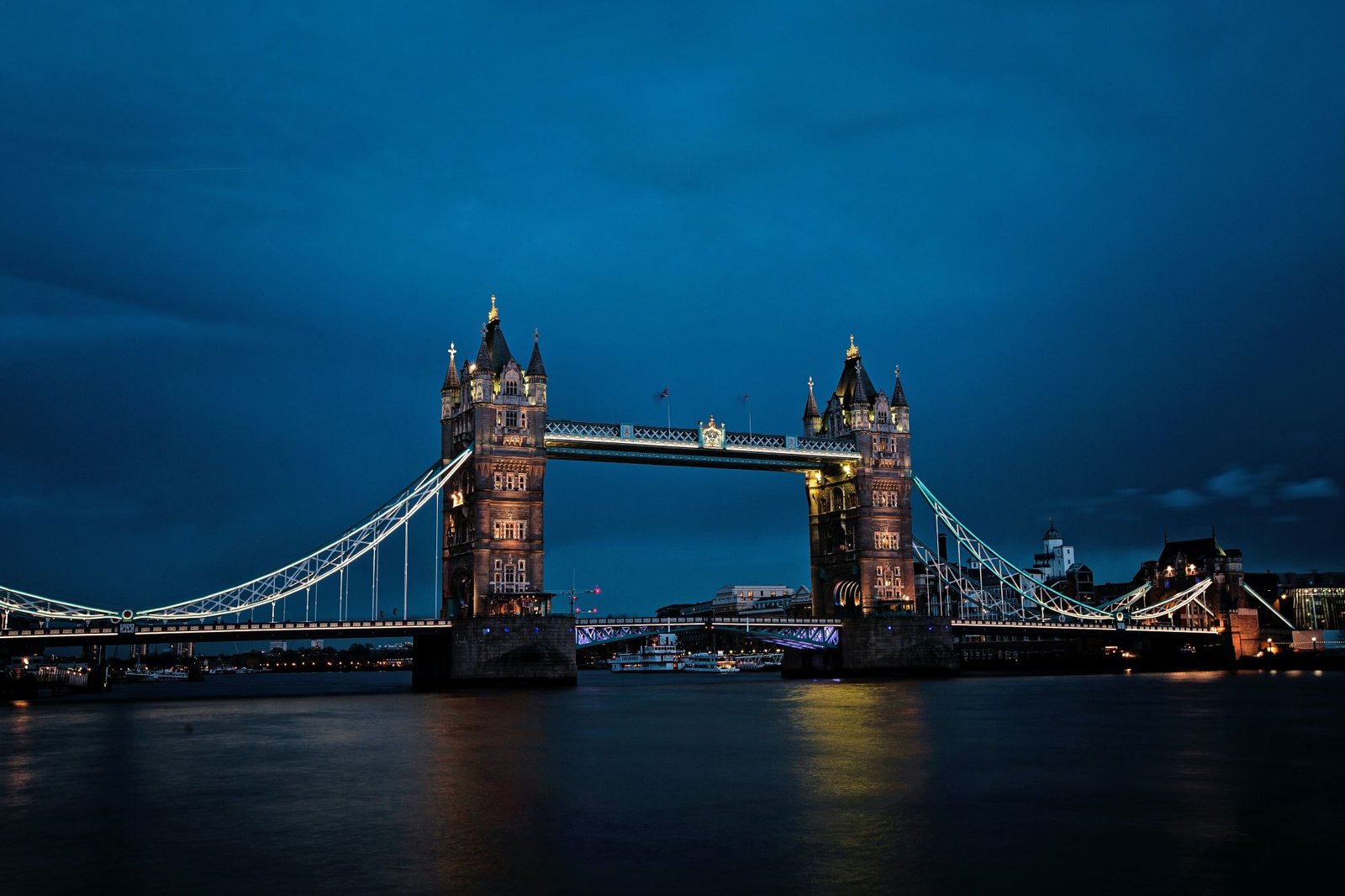How Learning Irish Changed My Life
I was 15 when Google arrived. Sitting in our school computer lab in Kansas, someone declared, “Let’s all Google ourselves!” That was the day I learned about poet Micheal Hartnett. He’d written a book called “Farewell to English,” in the same language my grandfather whispered to me as a small child! I read on, and I learned that this probable distant cousin had chosen to stop using English as a medium. I had to know why…
I found some of Michael Hartnett’s work online, and even some in Irish. Of course, I couldn’t understand a word beyond “Erin go brách”. I remember asking my grandma about it. She told me it was a useless language, which my grandfather had adored, but that it would be gone by the time I was an adult, then only a mere few years away. I didn’t understand the dynamics – why my proud Irish-New Yorker grandparents had such differing views on a language of all things, and the Irish one at that. Little did I know, this was the beginning of my Irish language education.

I went to school for theatrical design (and Spanish). The Fates foretellingly aligned and my first full production design came in my senior year: Brian Friel’s ‘Dancing at Lughnasa’. My grandma unofficially served as my dramaturg. I confessed to her, “I think I want to learn Irish”. She didn’t understand, though she did recite a few lines for me. I wish I could remember what they were, though looking back, it was probably a prayer. She had been told that the educated spoke French. And here I was quickly acquiring languages that weren’t French. All she wanted was a good career in my future. I know, despite our lack of mutual understanding on the topic, that she supported and believed in me. She was, after all, trying to help me succeed in this world. So much of my Irishness came from her. I think, were she here today, I could teach her to see Irish as something good. A birthright, handed down from our ancestors, the lens through which they saw and interacted with the universe, which still holds undeniable truths in its breath.
One day, years after college, I stumbled into an Irish language presentation at an Irish festival here in Kansas. Something inside told me, “Go. Sit. Listen.” I did. I heard the first “real” Irish since my granddad passed all those years ago. My soul beamed. I signed up for classes. After some beginner courses, life tugged the reigns in other directions…
Go tobann, 2020 – suddenly, the pandemic strikes! This was my time. I took my advantage with every online resource I could find. Luckily, one was the online community, Let’s Learn Irish. I signed up and I haven’t looked back.

This process changed my life. The more of the language I gathered, the more ancestral tools to hold in my belt, the more I craved. I started collecting myths/folklore, storytelling, and history. Now with our stories and words in my back pocket, I face the world more whole, with the Ancestors behind me. I am not the pain I experience. I am not depressed. Depression is not what/who I am. I, actually, just happen to have some depression “upon me” from time to time. While mental health is a serious issue, it is not my identity as English might have me believe. And, thus, I am simply a person who deals with carrying their burdens, like everyone else. This is but one example of how Irish is healing on a surface level. Generationally, I am healing wounds of language erasure, which I will hopefully never know firsthand, but which run in my blood nevertheless. I am healing my lineage, both forwards and backwards. I am Brigid, standing on the threshold, reconnecting my future with my family’s past, ushering in new life.

I have seen my great-granddads birth certificate. He died when my granddad was only six years old, barely a living memory by the time I was born, but there I was, “witnessing” life events of family members, who, according to the census, hadn’t a lick of English. I thought, “If I were a time-traveler, I would finally be able to speak with them… I hope they are proud.” Now, I know, great, grand- anything seems extremely long ago, but on the other side of my family, I knew three of my great-grandparents and one great-great-grandparent personally and have fond memories of them all. Perhaps, knowing so many grandparents on one side and just two on the Irish side set me up for a long-lived curiosity about what I missed.
Sometimes in my dreams, I speak with my granddad as Gaeilge. Oh, how I wish I could see his reaction to mo chuid Gaeilge: “A Dhaideo, is Gaeilgeoir mé freisin” – Grandad, I’m an Irish speaker too!
Bígí páirteach!
Join the online Irish community at LetsLearnIrish.com.
Follow on social media @LetsLearnIrish.





